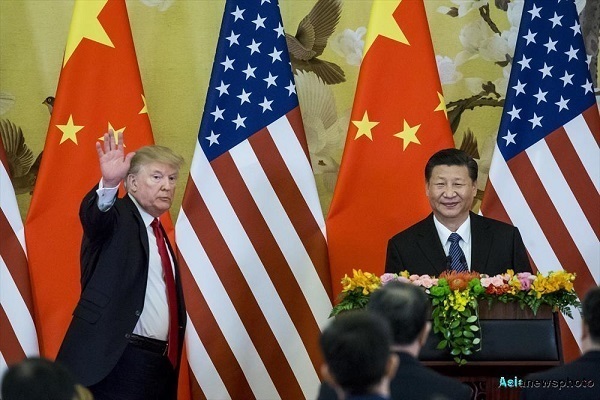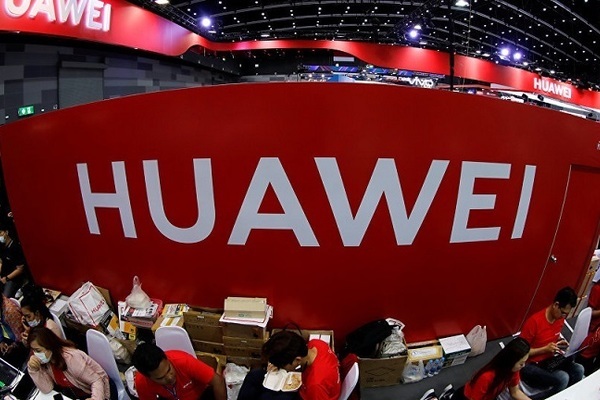Since the birth of the People's Republic of China on October 1, 1949, no foreign leader has ever issued an "ultimatum" with "condescending" words like President Donald Trump: Xi Jinping needs to attend and meet Mr. Trump at the G20 Summit in Osaka in late June 2019. If not, Mr. Trump is ready to immediately impose taxes on $300 billion of Chinese goods that have not been taxed among China's total exports to the US.
"Commercial war" or "total war"?
 |
|
The comprehensive strategic competition between the two great powers has really begun.
|
Although the trade war between the US and China is taking place very fiercely and the heat of the war is increasing day by day, in reality this is not a simple trade war, but a comprehensive strategic competition between the two great powers - one side has established the number one position, and the other is seeking to rise up and establish a new leading position.
Although both China and the US have avoided mentioning it, in fact, the factors that have helped maintain the stability of US-China relations over the past 40 years have been shaken to the root. In other words, the US-China relationship as we have seen is being eroded day by day, hour by hour, making way for the new relationship that is taking shape. This breakdown is shown in all aspects: worsening political and diplomatic relations; and strategic trust between the leaders of the two countries that has also gone and now replaced by strategic distrust.
In the field of economics and trade, Mr. Trump and the US government are seeking to balance the trade balance, not to let China "benefit" with the huge trade deficit of up to nearly $400 billion in 2018, a situation that has lasted for decades.
Since the normalization of relations on January 1, 1979, China-US relations have experienced many ups and downs, such as the Tiananmen event (1989-1993), the US aircraft bombing the Chinese Embassy (1998), and the EP3 aircraft case (2001), but never before has the China-US relations been as bad as it is now.
In the National Security Strategy published in December 2017 and the US Department of Defense’s Indo-Pacific Strategy Report published on June 1, 2019, the US officially considered China a strategic rival, which means that the US never "tolerates" China's usurpation of its No. 1 position in the world.
On the surface, the change of China-US relations seems to be made only by the "belligerence" of Mr. Trump and his administration. This is true, but it only reflects part of the picture. The attitude of the US Congress, the policy-makers in Washington as well as many American scholars of China at the present time is not much different from the views of the Trump administration, even “tougher” in many cases. In society, the percentage of US voters who are increasingly worried about China increased to 58%, while it was 46% six months ago.
This is a "new consensus" phenomenon in Washington that Chinese policy makers need to take into account. In the opinion of American elites, this is probably the last time the US can "bully" China, and the US needs to take action before it is too late.
In the opposite perspective, China also began to "lose patience" and has tried to "make counterattack". On the one hand, China seeks to refute all of the Trump administration's allegations, not accepting unilateral, unequal conditions that force China to give up its development rights. On the other hand, China is seeking to strengthen its internal strength and adapt to the war that it knows to be long-lasting and more difficult than any "confrontations" it has encountered in the past, to neutralize unprecedented risks from the US.
Trump: Immediate advantages and the cards in hand
 |
|
Huawei, China's leading 5G company, is facing harsh sanctions.
|
With the nickname "Tariffs Man", Trump strongly believed in the usefulness and effectiveness of the tariff tool in making pressure on the opponent, whether they are allies like the EU, Mexico, Canada or rivals like China, to force them to agree with America. Successful lessons learned in the past when the US used the tariff tool to force Japan to "raise the white flag" and sign the Plaza Agreement 1985 and recently forced Mexico to accept unilateral US conditions to stop the inflows of Illegal migrants into the US via Mexico has made President Trump quite "confident" in putting pressure on China.
Supporting Trump's tough tariff policy is that the US economy is in a growth cycle lasting nearly 120 consecutive months with a GDP growth rate of 3.2% in 2018, and a low unemployment rate of 3.6% (the lowest in more than 50 years). And the Dow Jones stock index has increased by nearly 30% within 2.5 years since Trump came to power. Trump also believed that high tariffs will make American and foreign companies shift investment toward the US, creating more jobs, and helping the US government increase revenue or at least shift investment out or make it difficult for the rival that the US is putting pressure on.
This is in contrast to China's economic picture in the past year since the trade war between the two countries began: China's economic growth rate fell to 6.2% in 2018, the lowest level in three decades, the industrial growth index and stock indexes fell, the unemployment rate WHAT??? ROSE?, while its huge foreign exchange reserves have been evaporating quickly. Certainly, along with the escalation of the trade, the socio-economic issues that China is facing have also increased.
Trump with his "experience" has caught up to this very quickly so he "confidently" wanted to force China to sign a trade agreement, forcing China to change more than 100 domestic laws, along with monitoring mechanisms and automatic sanctions if this country shows signs of violation.
The case of Japan may be a lesson for China. From the world's No. 2 economic superpower, rising strongly and leading the world in semiconductors and many other fields, Japan has slipped and its economy has been stagnant for more than three decades since it was forced to sign the Plaza Agreement in 1985.
China, of course, does not want to fall into such a situation. However, China's options are quite limited now: If it accepts the US trade agreement, China may escape temporary difficulties but in the long run it will be difficult to escape the invisible and tangible noose of the US. This also means that China is forced to give up the dream of competing for the leading positon with the US. If China refuses this agreement, it will have to face a series of difficulties with unpredictable consequences.
It is highly possible that Trump will use many cards at once if China does not accept the proposed trade agreement.
First, in the field of trade, Trump has just used part of the tariff card. During the 2016 presidential campaign, Trump threatened to impose a 45% tax on all Chinese exports (equivalent to $500 billion) to the US. If the US does this when the trade war escalates, it means a ban on almost all of China's exports to the US.
Second, the US began to notice and attack China's leading technology companies. After its success in pushing Chinese technology firm ZTE to the brink of bankruptcy and only being "rescued" after ZTE accepted to replace the whole management board, paying 1.4 billion of fines and $500 million of deposit, now Huawei, China's leading 5G company, is facing harsh sanctions. Certainly, the list of Chinese technology firms that will be on target will be extended in the near future, regardless of whether China and the US will reach an agreement on trade.
Third, other tools are still being considered by the US, such as the ability to put China on the list of countries of currency manipulation; pressure on the East Sea issue; energy (tightening oil and economic embargoes with Iran); using the “Taiwan card" (for the first time since January 1, 1979, Taiwan was called a "country" in the US Department of Defense’s Indian – Pacific Ocean Strategic Report, which was released on June 1). In addition to "bilateral attacks", the US is making moves to attract allies, partners, and friends to show its attitude towards China on multilateral forums.
As the world's second largest power with a strong nationalist spirit, it will be very difficult for China to accept US demands. More than anyone else, Chinese leaders fully understand that accepting this trade agreement without significant adjustments will not only restrain China economically, but will be political suicide.
This explains why China has not only "ignored" Trump's demands, but also loudly demanded that any deal must be based on mutual benefit and respect. China is also confident that with a population of 1.4 billion, a dynamically developing economy and unexploited potential, China is fully capable of overcoming and neutralizing any pressure from outside.
As both the US and China continue to raise their voices, where will the China-US competitive relationship go?
Mai Nhat Duong

Vietnam buying more materials from the US amid US-China trade war
The US-China trade war is giving opportunities to Vietnam to diversify material supply sources, increase imports from the US to reduce the trade surplus with the country, and reduce the trade deficit with China.

Where will manufacturers go if US-China trade war gets worse?
Will Vietnam be chosen as the destination for investors who plan to move out of China?

Vietnam a magnet for foreign investors amid US-China trade war
Vietnam is now in a position to attract even more investors and promote mutual prosperity with the US, despite the uncertainties caused by the US-China trade conflict, a US official said at a trade forum last week.
 In the opinion of the American elite, this is probably the last time the US can "bully" China and the US needs to take action before it is too late.
In the opinion of the American elite, this is probably the last time the US can "bully" China and the US needs to take action before it is too late.